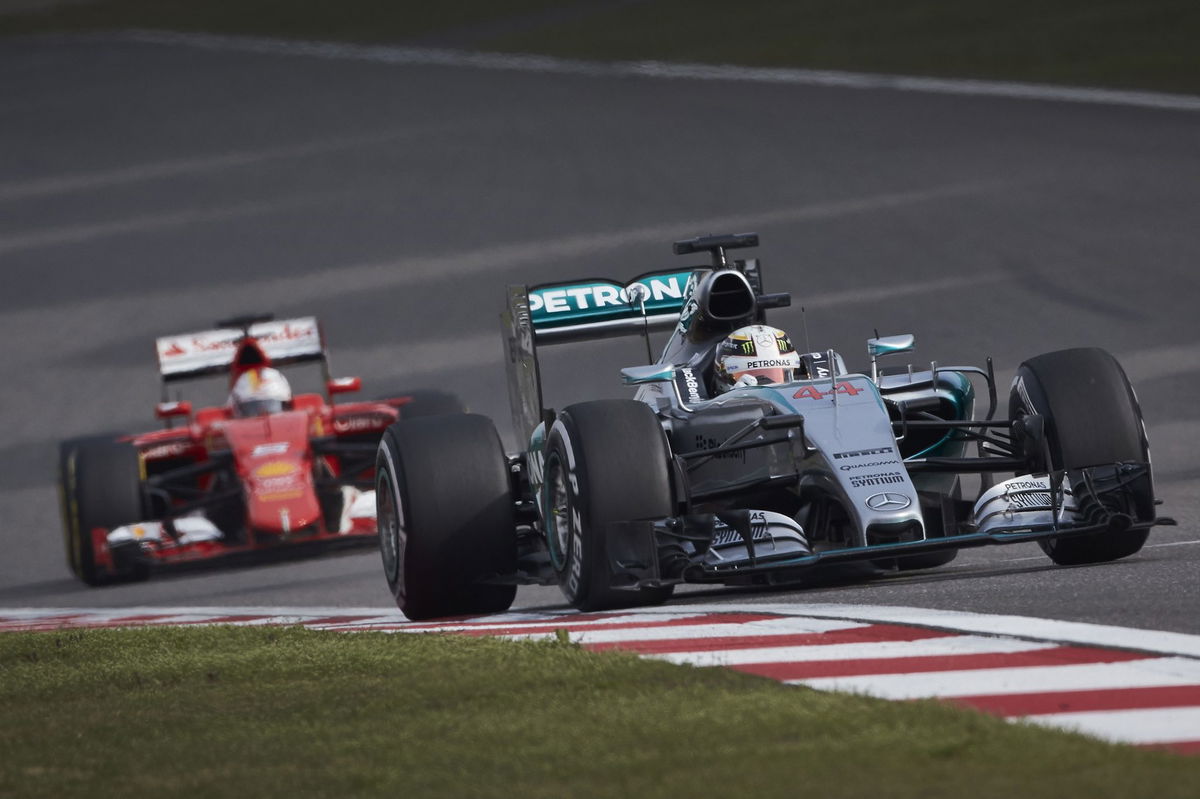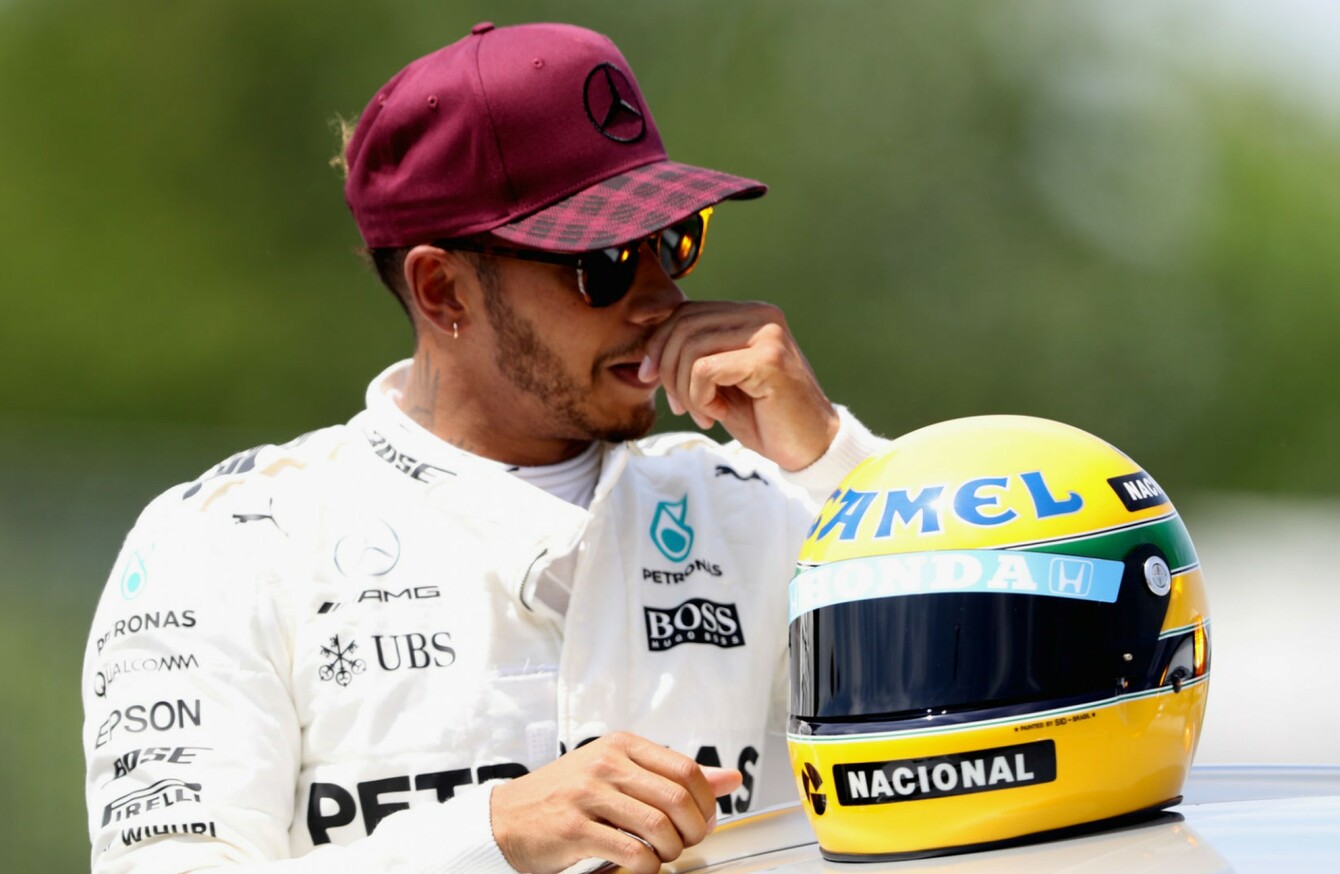
Imago
F1 Legends

Imago
F1 Legends
Lewis Hamilton, 10 years after his first pole in the Canadian GP, took his 65th at the same venue in 2017. 65 poles, spread across ten years gives an average of 6.5 per season. With close to 19 or more races in each season, anyone who is not familiar with Formula 1 will argue that this can not be a big deal. Of course, Formula 1 fanatics know the significance of the magic number 65. 65 is the number of poles that F1 Legend, Ayrton Senna achieved in his 10 year career as a Formula 1 driver.
Watch What’s Trending Now!

Imago
Lewis Hamilton with Senna’s Helmet that was awarded for matching latter’s pole count
Now Sebastian Vettel, Lewis Hamilton and Ayrton Senna, all of them have had roughly ten years in the sport. So comparing the three should be easy. But it is not. In the same amount of time, Hamilton has more poles than Sebastian, who stands at 47 (Just behind Schumacher, Ayrton and Lewis). Hamilton also have more grand prix wins, 55 to Sebastian’s 45 which is still four more than Ayrton’s 41. Even in race starts Sebastian lags behind Hamilton. Here Hamilton stands at 194, Sebastian is at 185 and Ayrton comes in last at 161. Yet, Sebastian has four championship titles to his name, one more than three of Hamilton and Ayrton.
ADVERTISEMENT
Another problem that presents itself is that Ayrton is a driver from completely different generation of the sport. With different technologies, different tracks and to some extent, different racing rules and culture. Driver aids have evolved but managing the various variable in the car has also become a task. A driver today has to manage engine settings, suspension settings, brake bias and what not. In this respect comparing Hamilton and Vettel is easier since they both started together in 2007 and hence, have dealt with the same tracks and the same technologies inside their cars.

Imago
Hamilton vs Vettel, Spain 2017
Even so, they have never competed together in same teams. So one can argue that if the drivers are equally matched, the constructor they race for make all the difference. Red Bull made a hell of a car when Vettel dominated the sport. Same can be said for Mercedes from Hamilton’s two championship title seasons. It is now in 2017 that we see both of them competing with each other with more aggression than ever. Yet, it is safe to say the car with the better race set-up or better race strategy has come out on top. So are both equally matched in all respect? Who will be the ‘bigger’ legend when both retire?
ADVERTISEMENT
None of the two drivers straight out proclaim themselves as legends. Hamilton has equalled legend Ayrton Senna in most of the statistics (Ayrton will always have Monaco). Yet he speaks of Ayrton as a supreme driver, better than himself. Vettel has won more championships than the Brazilian, and even he would not go out to say he is better than either of them. For two drivers who have achieved more than many Formula 1 legends, when do they identify themselves better than previous drivers? What is their tipping point?

Imago
Two Formula 1 legends, Senna vs Prost
Does a driver become a legend if he wins? Or is there more to it? Does it have to be multiple championship wins, or will one do? Better still, will a single race win will do? What if the race is Monaco, the crown jewel(Yes I am referring to Olivier Panis)? I believe any driver that forces the Formula 1 fanatics to anticipate their win. The driver who makes us feel that his win is our win, is the true legend. This feeling should be independent of nationality, friendship or even lust. In this definition, every driver who awed us with his driving will qualify as a legend, as many are.
ADVERTISEMENT
So yes, Hamilton and Vettel, among others on the 2017 grid, will always be counted as Formula 1 legends. Whether the drivers deny it or accept it, it is the fans that makes them better legends than many others so far. It is their driving, their passion to win and their competitive edge. Their personalities and their competence. The tipping point for any driver to be a legend is when that driver makes the audience move with him. Make them race with him. And in that respect, most drivers are legends, some bigger than others but legends nonetheless.
ADVERTISEMENT
ADVERTISEMENT
ADVERTISEMENT

